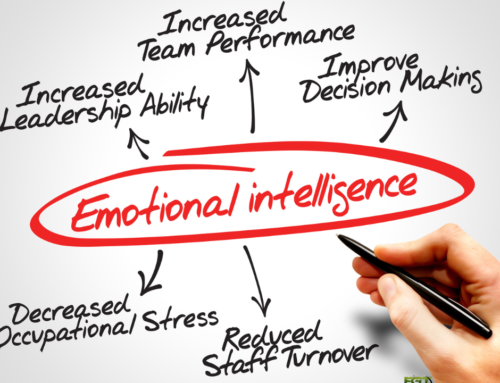Have You Committed the Fundamental Attribution Error? Chances Are You Have – Here’s How To Improve
When you read the title above, most likely, you felt that judgment – a sense that I pointed a finger and found you wanting.
All of us are guilty of having unfairly jumped to conclusions about someone or something at work. Unfortunately, snap judgments where we don’t make an effort to carefully consider the range of factors influencing someone’s behavior can be unfair and harmful. (Hint: Jumping to conclusions + or snap judgments imposed on others by you = Fundamental Attribution Error!)
How many times have you thought of someone at work as being a bit dim, unmotivated, or unfriendly? Chances are you view this person through a certain lens that you have created based on your personal experiences in life. With or without your conscious awareness, this can influence your relationship with this co-worker for as long as you work together.
There is More Than Meets The Eye
Effective leaders practice. You aren’t perfect, and your opinions and judgments can pop into your head before you know it. That isn’t the issue. That is human. But what you do with your next thought is essential. The daily practice could include a deliberate effort to understand someone’s behavior or attitude before you come to a conclusion.
For instance: is it possible that a co-worker is behaving as they are because current work circumstances have them feeling significantly stressed or exhausted? Is it possible they are operating above their balanced stress level or beyond their sense of confidence? How do you react to others when you are in a similar situation?
You may notice that the co-worker, Joe, at times of uncertainty and stress, may perform admirably in areas of personal confidence or expertise. However, those duties that take her further from her comfort zone could illicit the anxiety-driven behavior you find offensive.
What Is the Fundamental Attribution Error?
Often, when we interpret other people’s behavior, we make the mistake of overestimating the importance of certain character traits. In so doing, we are also underestimating the importance of situation and context.
This is a common tendency in humans that psychologists have named the fundamental attribution error.
Basically, we are inclined (or at least have the tendency) to believe that what people do reflects who they are (i.e., Stephen is always late with his reports, he must be a procrastinator). We over-attribute certain behaviors to someone’s personality.
Conversely, we tend to under-attribute certain behaviors to various situational context(s). In other words, the less we know about someone, the easier it is for us to label them and then stick with those assumptions we have come up with as the “objective” truth in a given situation.
How to Avoid The Damaging Effect on Your Co-Workers
In a workplace setting, we often jump to the conclusion that our co-worker’s behavior in a certain situation reflects who they are. We may not have considered the limitations and constraints within which Joe might have operated. The outcome is both unfair and potentially detrimental to cohesion in teams and the workplace overall.
Because this fundamental attribution error is our human tendency to blame or judge a person based on their behavior, the effects on a team of co-workers can be significant and harmful.
When we make regular, moral judgments about our colleagues and judge certain behaviors as positive or negative, we jeopardize opportunities for growth and improved cohesiveness.
Fundamental attribution error can wreak havoc in your staff or organization. Some possible outcomes are suggested below:
- weakened collaboration
- leads to ineffective communication
- incites high turnover.
All this is unnecessary, however, with a determined effort to practice seeing a bigger picture.
Don’t Be Too Judgemental
Our brains tend to like shortcuts, and without engaging in deliberate thinking, we will more often than not opt for the path of least resistance.
Fundamental attribution error occurs because we don’t see anything wrong with our judgment and are pretty content to believe in our version of reality.
Be diligent in your efforts to catch yourself when you are about to label someone as “this way” or “that.” Instead, take the time to consider what might be causing them to act in a certain way and try to understand. If possible, try to speak to your co-worker to clarify where they are or how they see things. You may be surprised by how much there is to the story. And there is always something more to the story.
Respect Another’s Reputation
It’s counter-productive when somebody at work loses their credibility because of one mistake or two. It also becomes tragic when co-workers are never given another chance to prove their worth, regardless of how hard they try, because someone’s initial perception is what has stuck. Unfortunately, it happens, and it is all too easy for undeserved reputations to flourish in workplaces.
So, the next time you find yourself in a situation where you may be unfairly “stamping” a colleague a certain way, ask yourself a few questions.
- What unknown factors may be contributing to the situation?
- Has he or she always been this way during prior similar situations?
- How might you be in a similar predicament?
- Do you have enough context?
Although it takes a bit of effort to shift your perspective from a negative to a positive one, the payoff could be unfathomable.
Wherever you are, you perceive the situation and people through who you are. The more room you offer others to “be-come” better, the more room you give yourself to do likewise!






